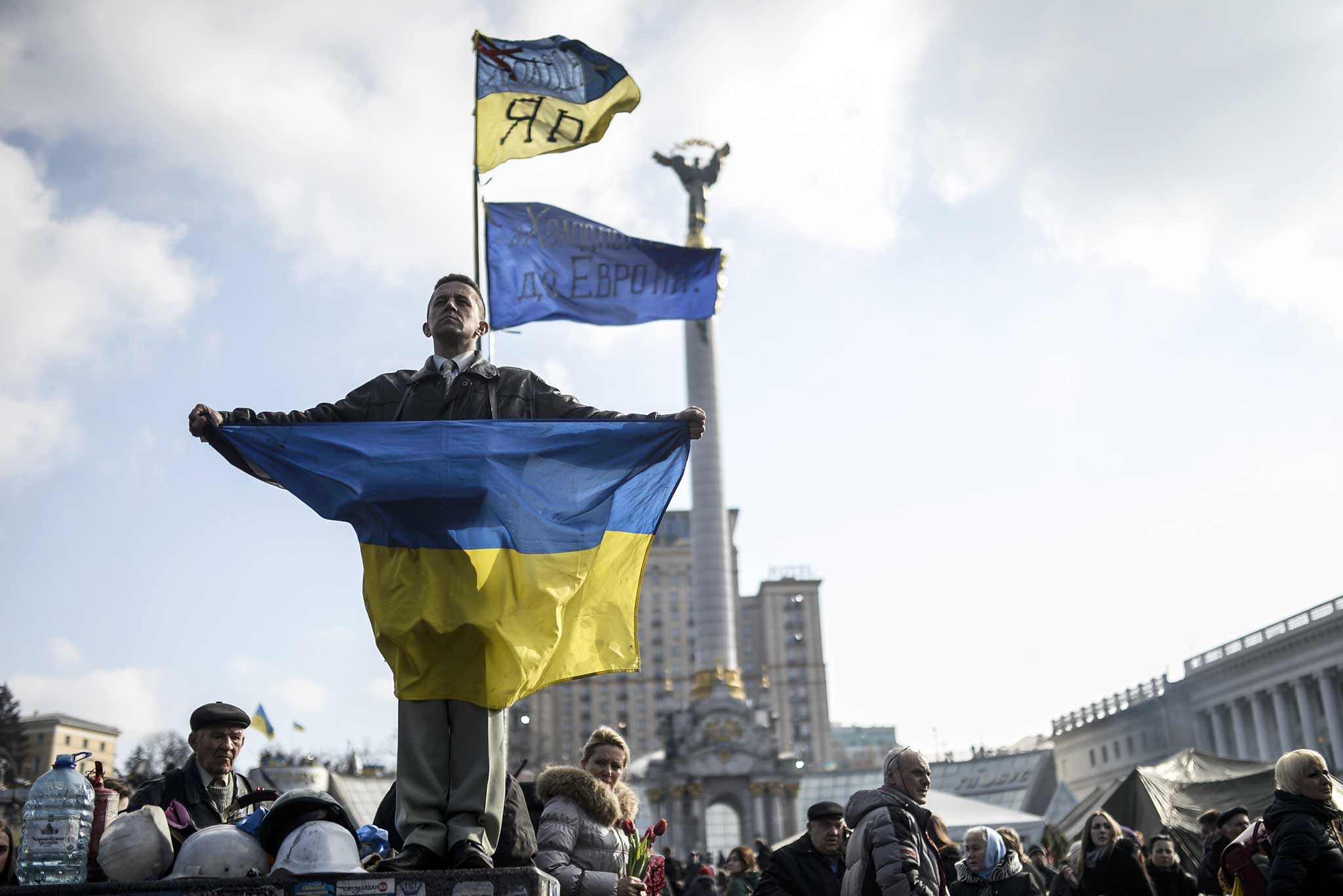Ukraine Diaries by Andrey Kurkov, trans. Sam Taylor, book review: Soul-searching diaries recount the tumult of revolution

Not many diaries contain such laconic-sounding entries as: "Drove the children to school, then went to see the revolution," but then Andrey Kurkov is no ordinary dad doing the school run, and the recent overthrow of President Viktor Yanukovych of Ukraine was a strange kind of revolution. A novelist whose home was 500 yards from Kiev's central Maidan square, from last November until April he had a ringside seat at the popular revolt against the President and his Praetorian guard of pro-Russian cronies.
The prospect of reading Kurkov's diary initially inspired some trepidation because the thoughts of East European intellectuals do not always work well in English. The style can jar, and sound ponderous for Anglo-Saxon tastes. I need not have worried. Kurkov is not a prickly, status-conscious writer. He guides us through months of tumult in Kiev in the style of an informed but convivial flaneur, and his entries crackle with irony and humour. The revolution that unfolds through these pages has an old-fashioned air to it, almost as if it were a throwback to 1848 – although that is my reading, not the author's.
As in the time of the "Springtime of Nations", patriots deliver stirring speeches in the shadow of the statues of long-dead poets, students proclaim their willingness to die for the Motherland, open-air meetings commence with blessings from bishops and protesters shelter from the police in the sanctuary of monasteries. Clouds of incense seem to waft over many proceedings. At one point, all the heads of state of Ukraine – past and present – troop off to church to pray for guidance. That entry alone was a jolt. One struggles to imagine David Cameron, Gordon Brown, Tony Blair and John Major kneeling in a row in Westminster Abbey in search of divine guidance.
Kurkov is not a disinterested observer, coolly weighing up the respective strengths of the pro-Russian and pro-Western parties in Ukraine as they slug it near his home. He supports the pro-European option with conviction, and with difficulty restrains his children from joining the students on the barricades down the road. His position in this battle clearly involved much soul-searching, as he himself is Russian by birth and ethnicity. He does not labour the point; it is only halfway through that he drops in the fact that his grandfather died in eastern Ukraine in 1943, fighting for the Soviet Union against Nazi Germany and its local Fascist allies. Yet, today, he stands alongside those whom the Russian authorities and media routinely call "Fascists", rendering himself deeply odious in the eyes of the Kremlin and its supporters. Their fury worries him, but he doesn't budge. It's the Russian nationalists who are the true Fascists in this situation, he maintains.
The struggle over Ukraine's destiny is often presented as a straightforward tug-of-war between Ukrainian-speakers living in the one half of the country and the Russian-speaking majority in the other. Kurkov's dilemma, and his response to it, are an important reminder that the dividing lines running through Ukraine have more to do with ideology than geography, language or ethnicity. A divided country indeed, but perhaps not divided on the lines we imagine.
Join our commenting forum
Join thought-provoking conversations, follow other Independent readers and see their replies
Comments